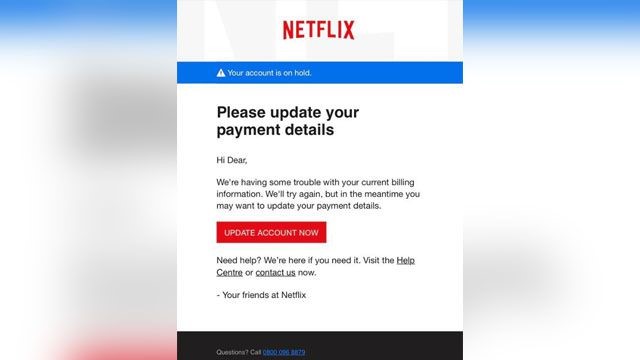

Phishing puts individuals, companies, educational institutions, and others at risk due to the possibility of allowing the bad guys to gain access to financial information, personal data, proprietary company information, health information, student data, and much more. These include the victim’s bank, an online payments processor such as PayPal, an auction site, a law enforcement agency, or even the IT department where the victim works. “Phishing” is the term used to identify an identity theft scam designed to target unsuspecting users of electronic communication methods, specifically email and text messages, and trick them into giving up sensitive personal or business information that can be used to steal their identity, raid their bank accounts and more.Ĭrooks use fake but authentic looking-emails and websites to convince users into supplying information the bad actors can then use to make your life a living hell.Įmails and other online communications can appear to be coming from a reputable source. In related news, former Secretary of Homeland Security Jeh Johnson, speaking at the Financial Crimes and Cybersecurity Symposium in New York in November 2016, told his audience the threat his department fears most is the lowly phishing email. Lithuanian bad actor Evaldas Rimasauskas allegedly impersonated Taiwanese electronics manufacturer Quanta Computer by sending phishing emails to employees at both companies, requesting payment for goods and services. The employees were tricked into sending upwards of $100 million to overseas bank accounts. CNBC reports Google and Facebook were victims of an elaborate phishing attack that targeted employees at both companies. However, this is only one of many methods con artists can use to dupe unwitting victims.Įven employees of large internet firms are not immune to phishing attacks. An OAuth token allows Gmail users to grant actual useful third-party apps access to their Google accounts. Victims who fall for the trap will be directed to an actual Google page, where they unknowingly authorize the “Google Defender” app to view and manage their email.Įven though the victim hasn’t given up a login password to their account, they have still handed over what’s known as an OAuth token. The email is a ruse designed to get the users to give up their special access token for their Google account.


E spionage group “ Pawn Storm ” sends out a fake email to Gmail users with the subject line: “Your account is in danger.” The email claims there have been several unexpected sign-in attempts into the user’s account and suggests the user install the “Google Defender” app.


 0 kommentar(er)
0 kommentar(er)
